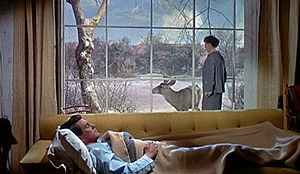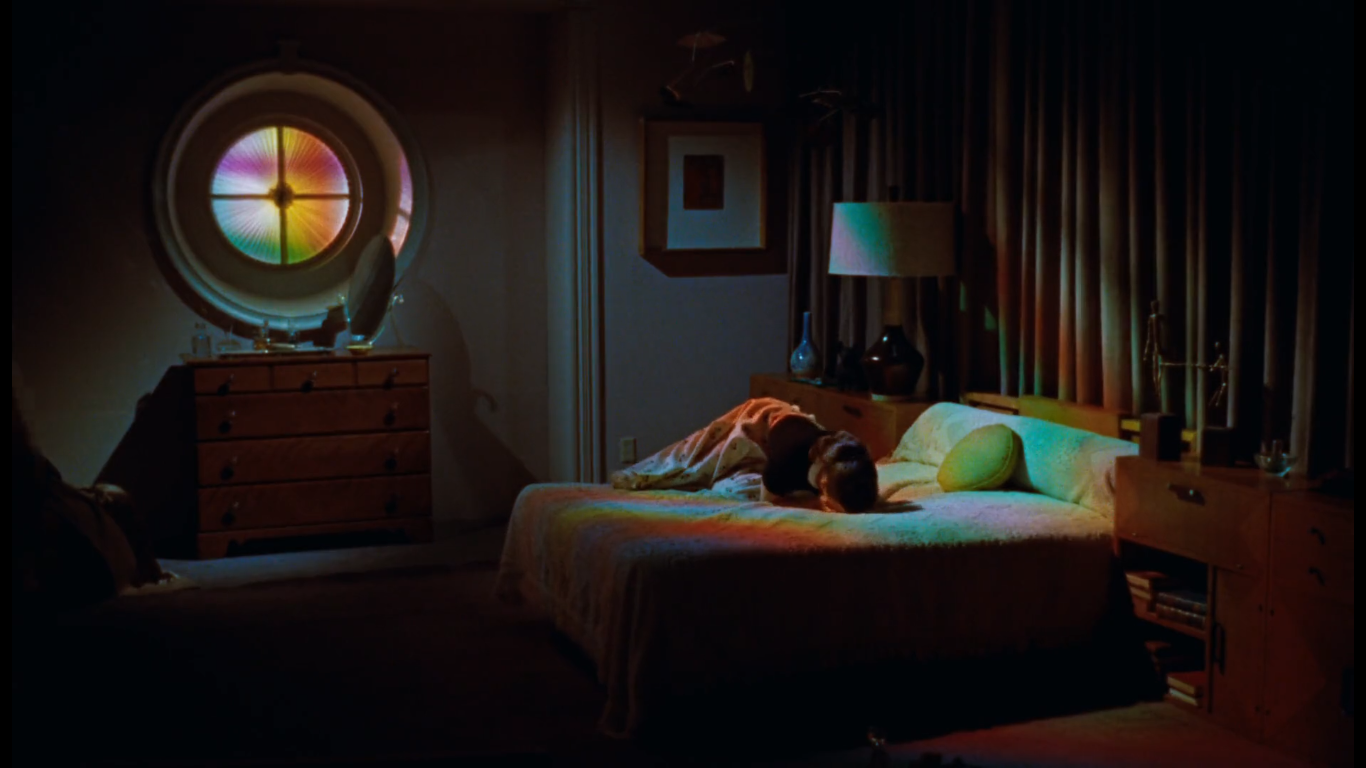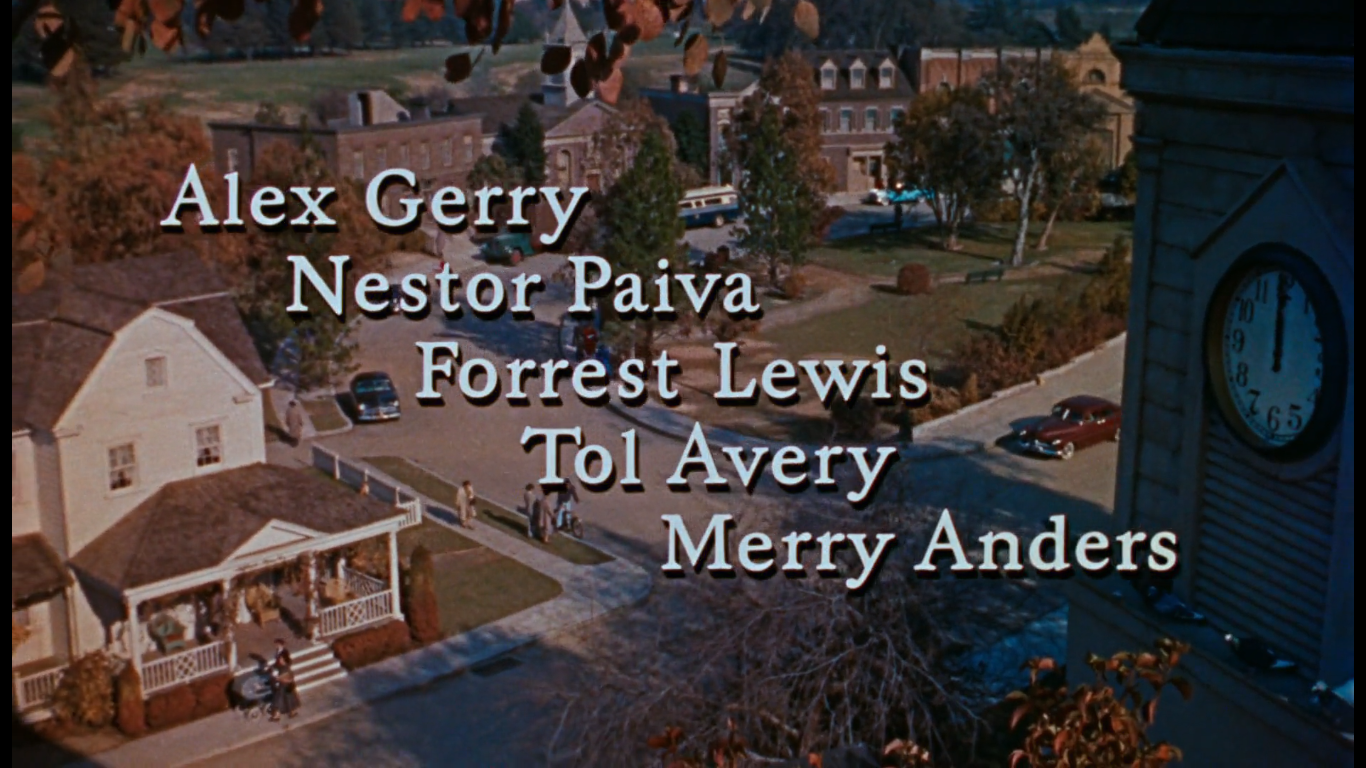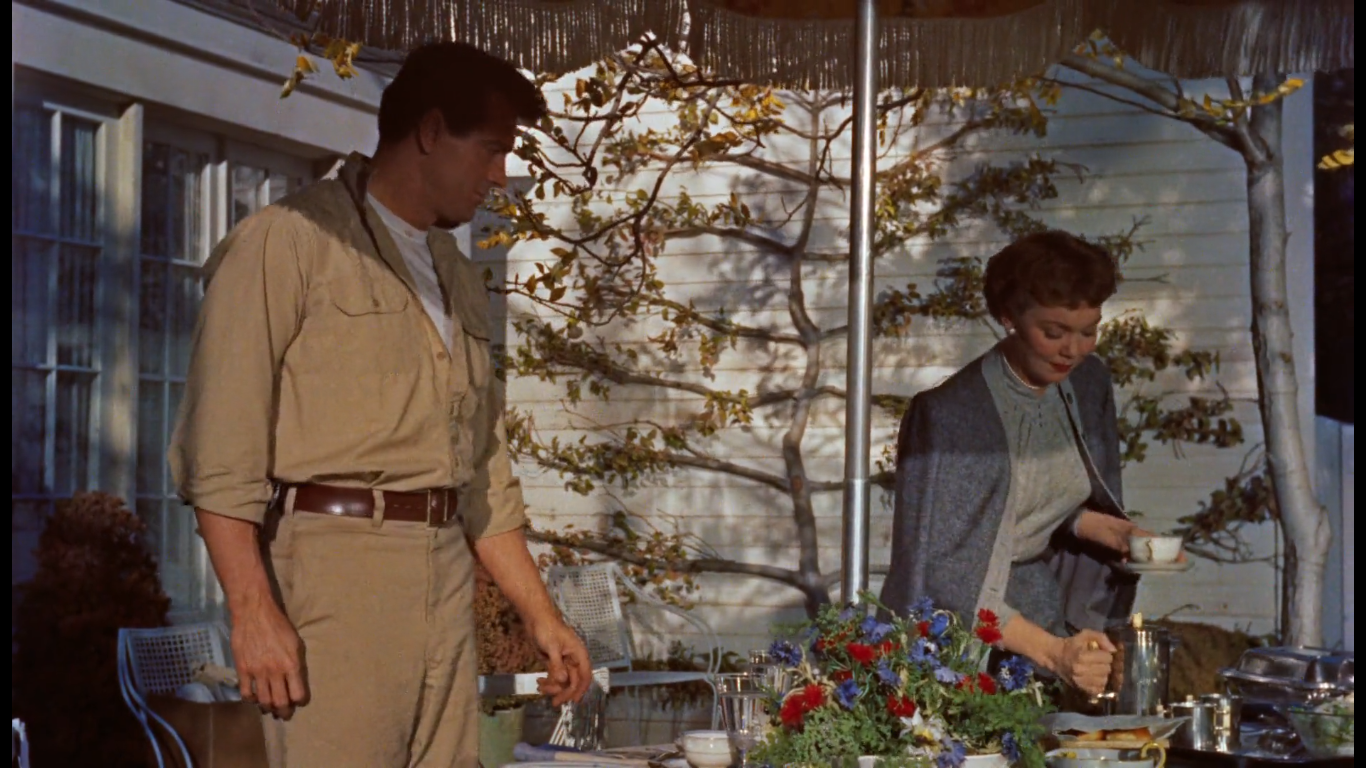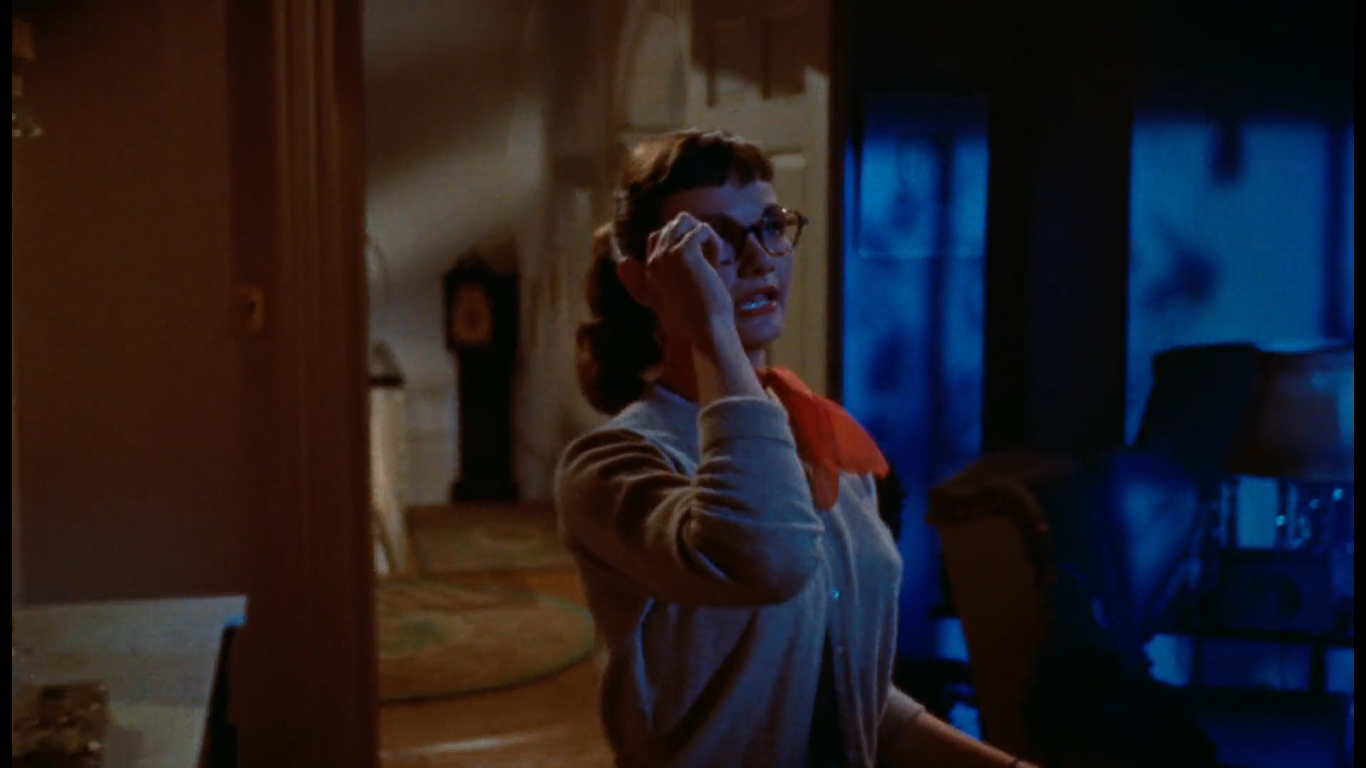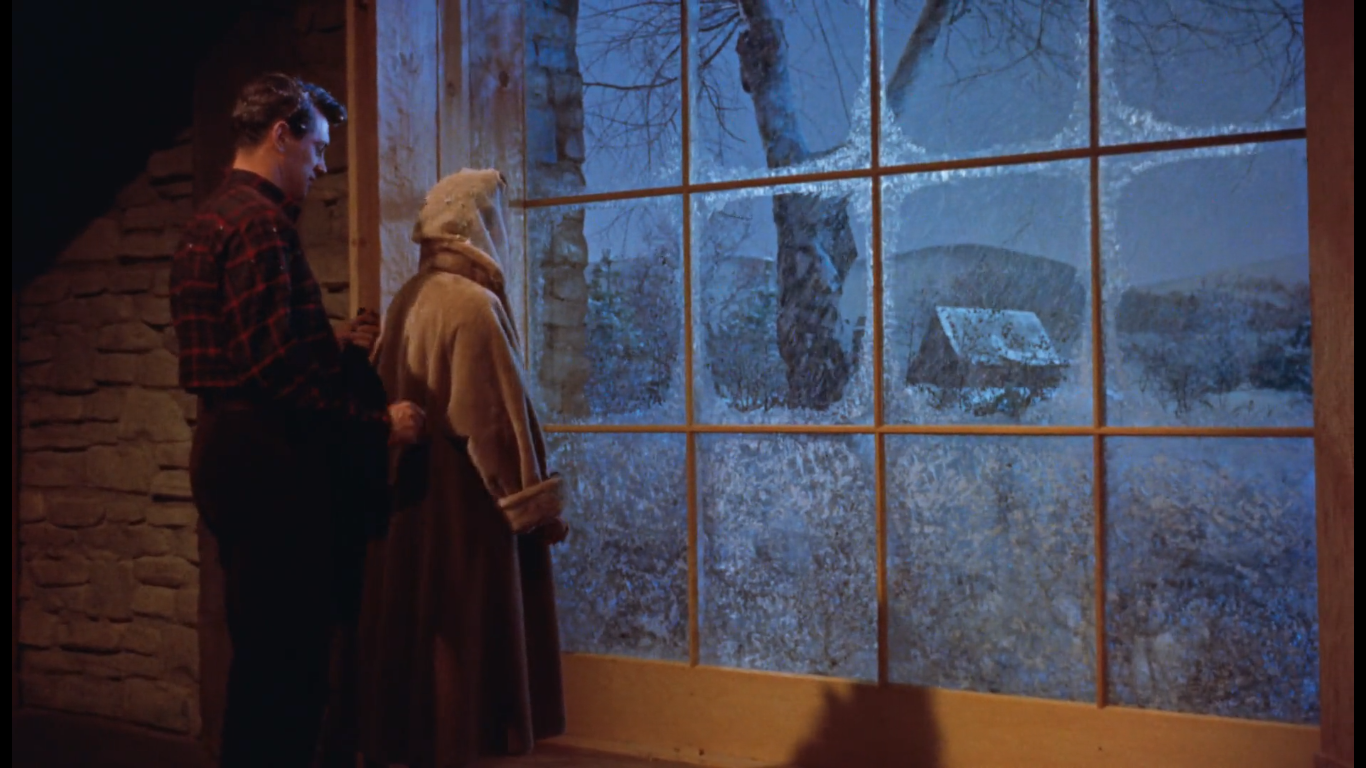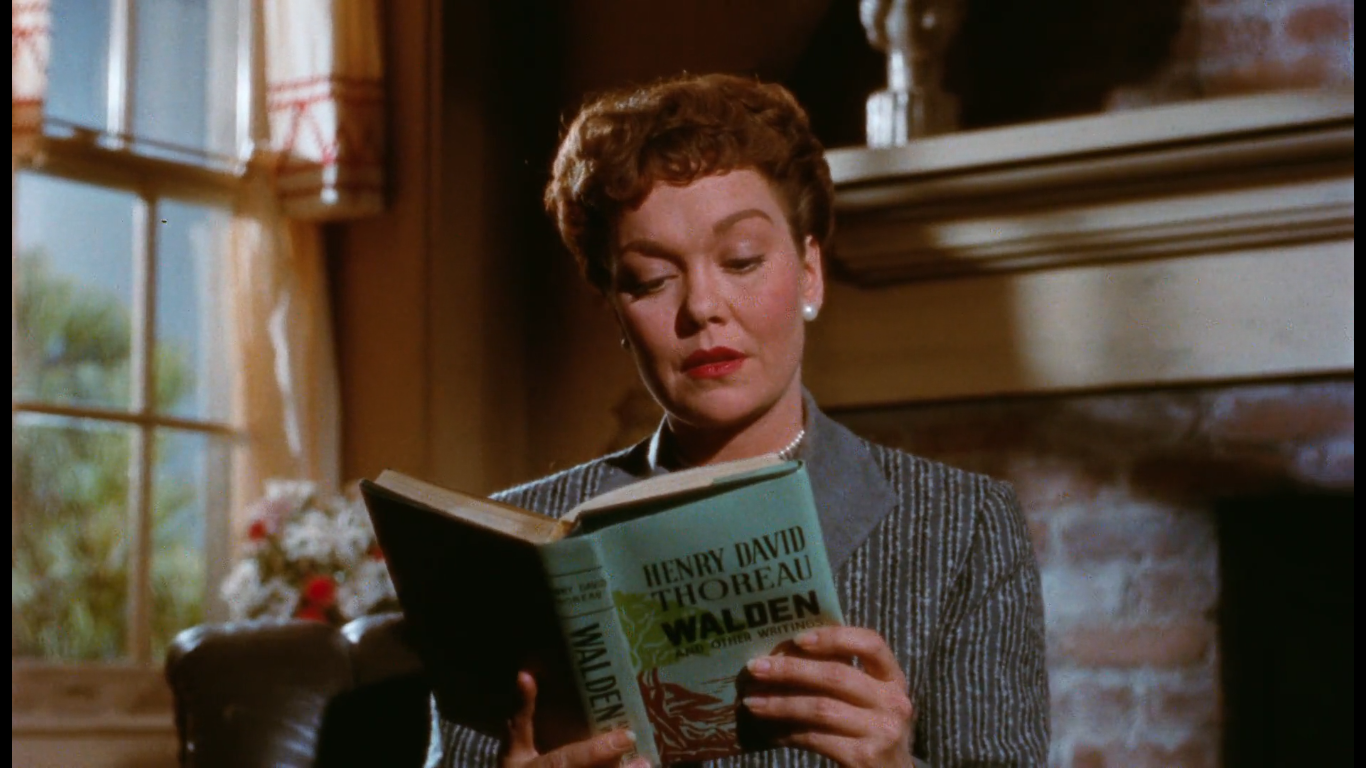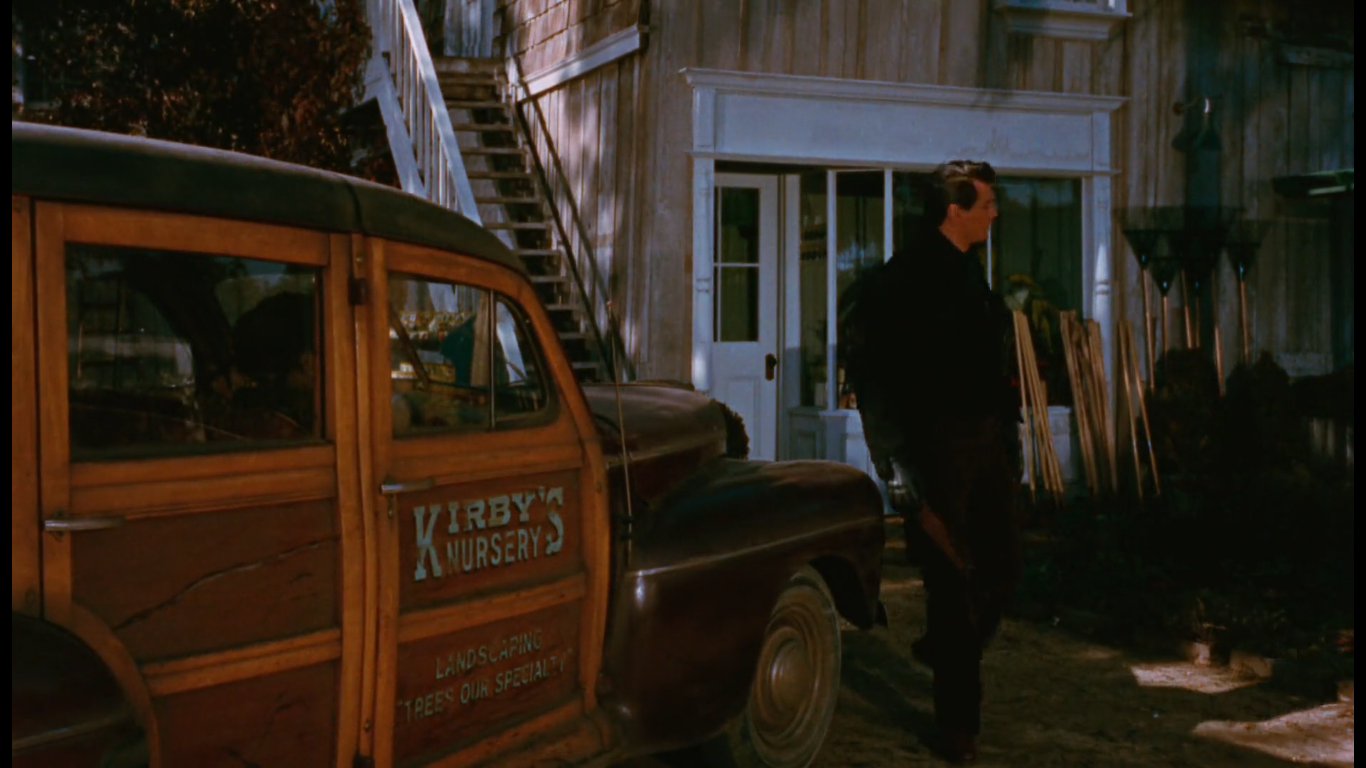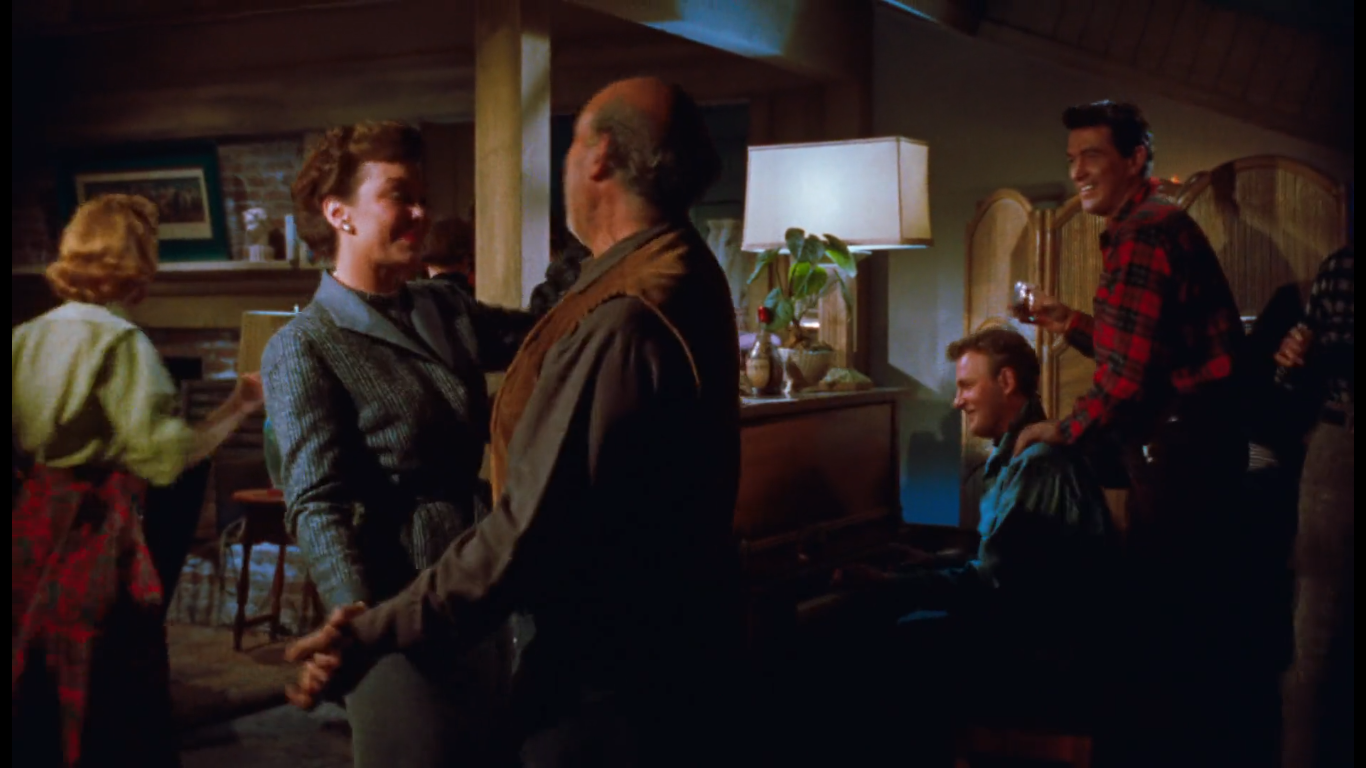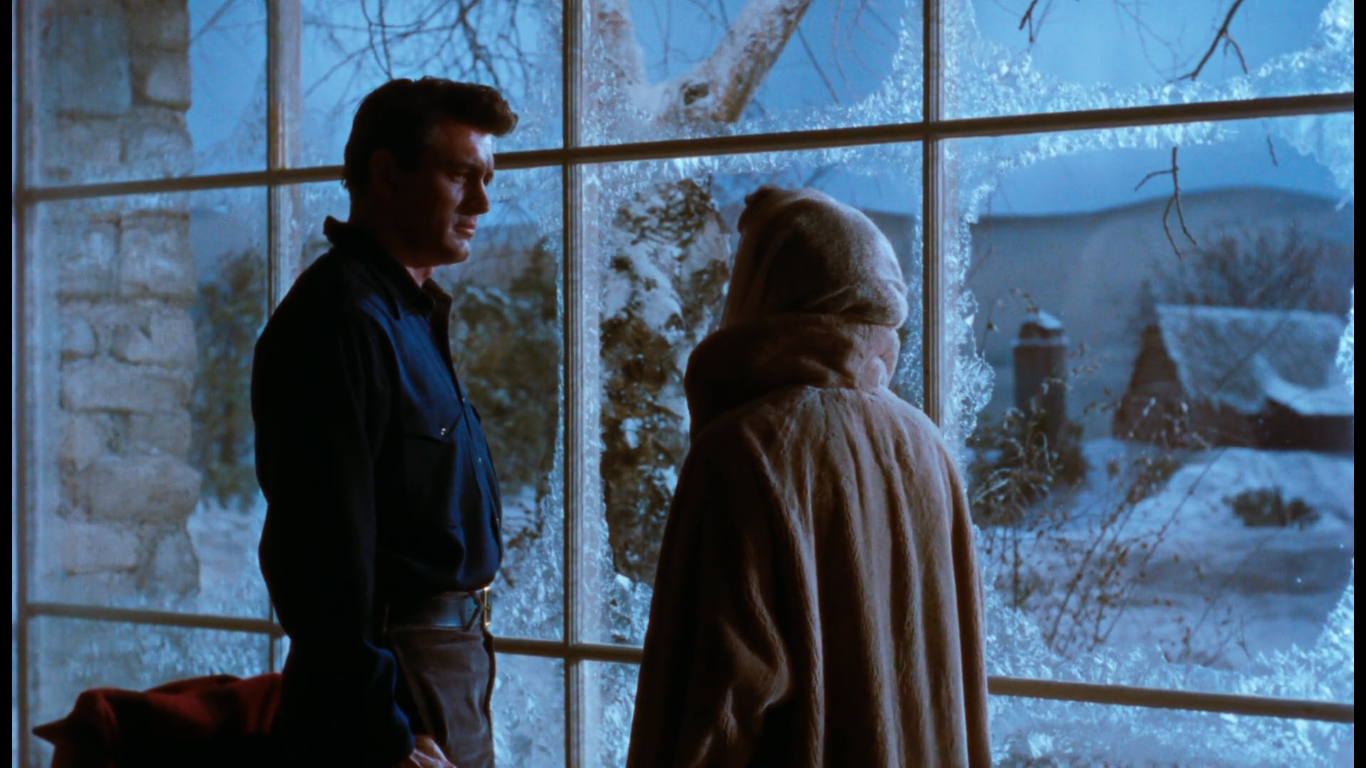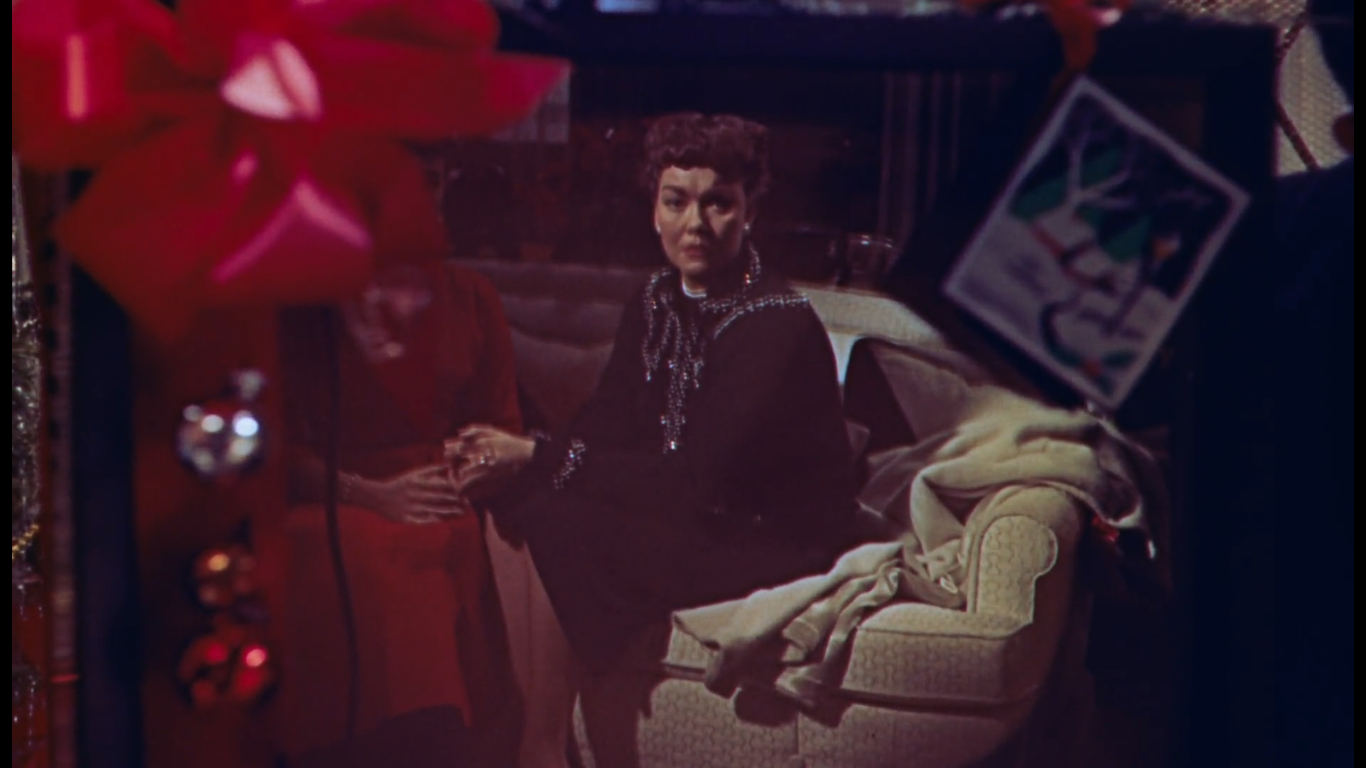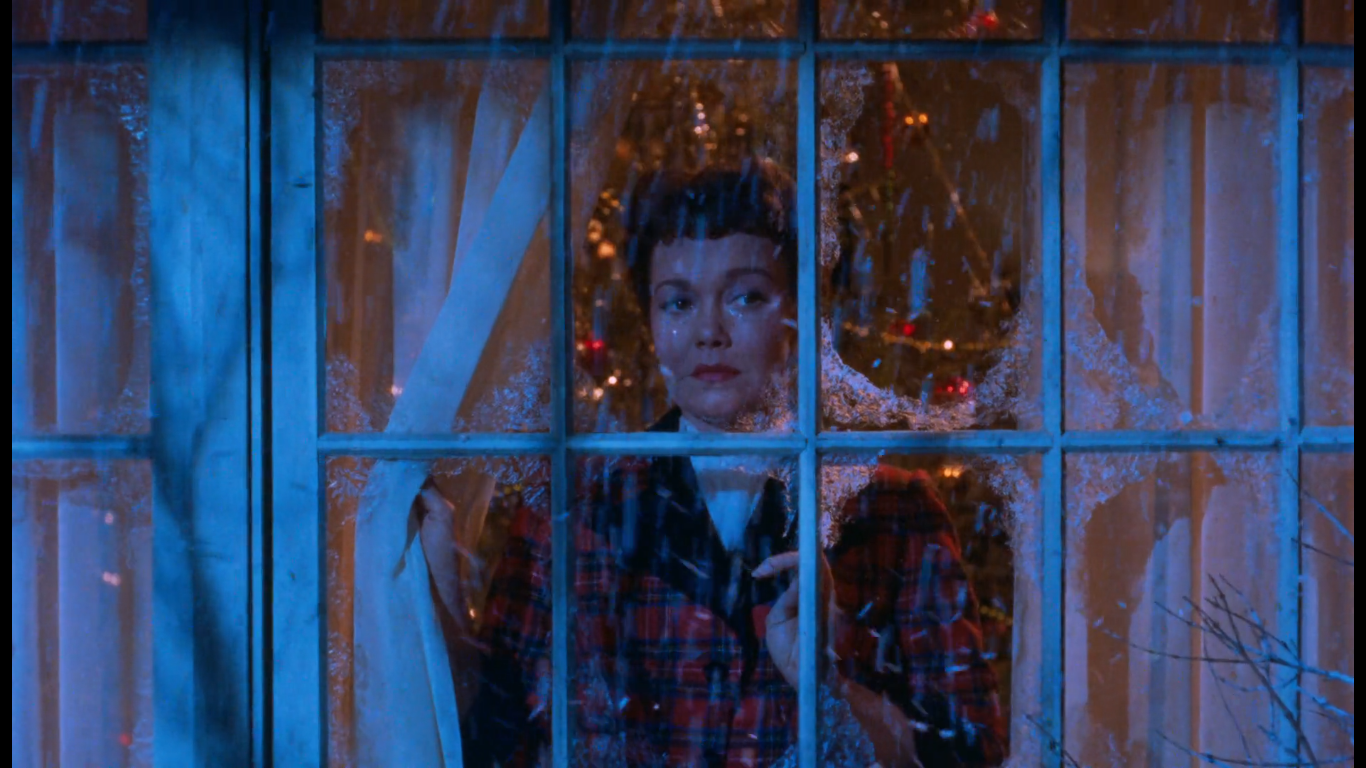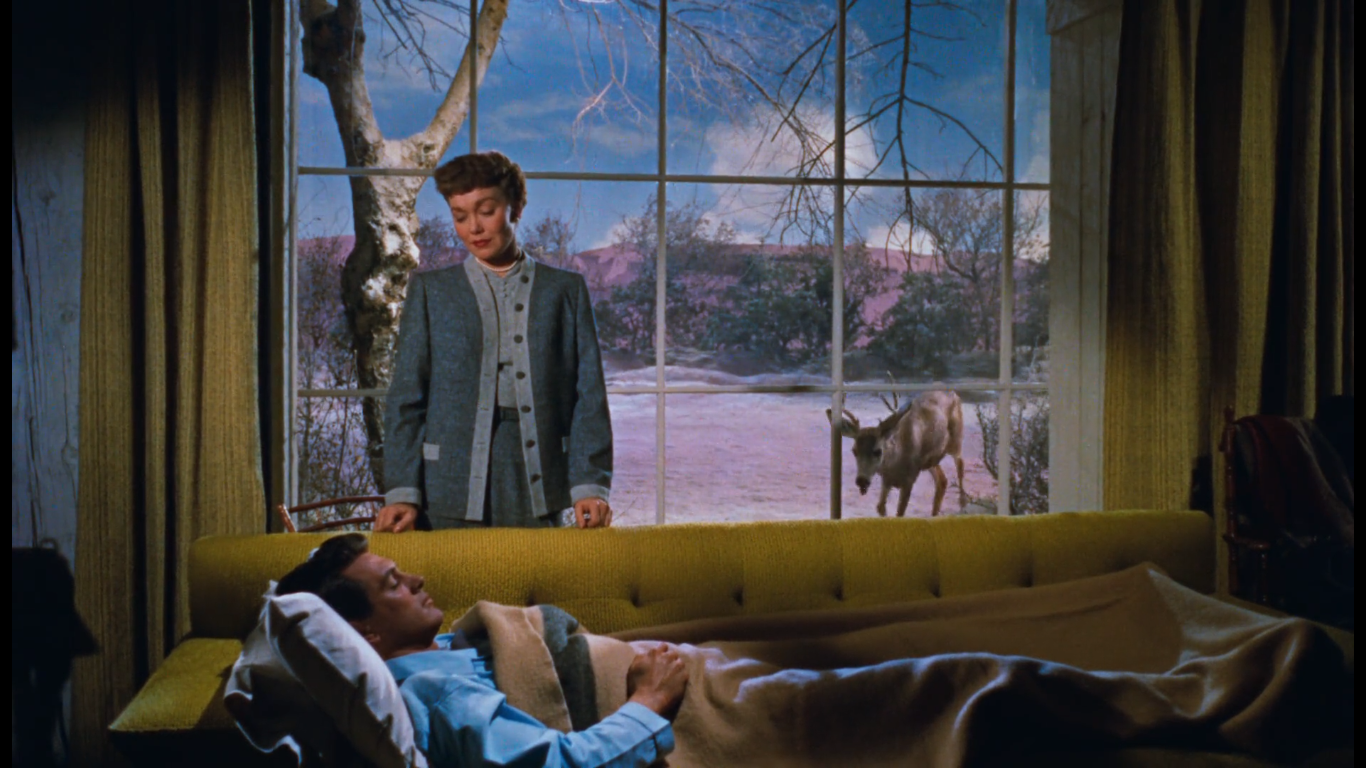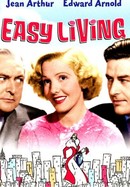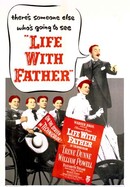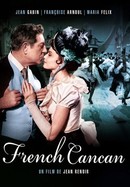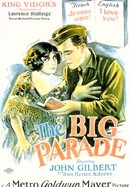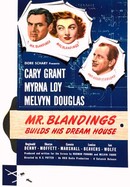All that heaven allows
All that heaven allows
Всё, что дозволено небесами
| Всё, что позволяют небеса | |
| англ. All That Heaven Allows | |
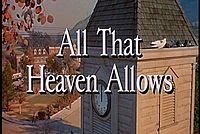 | |
| Жанр | |
|---|---|
«Всё, что дозволено небесами» (англ. All That Heaven Allows ) — американская мелодрама 1955 года, режиссера Дугласа Сирка, с Джейн Уайман и Роком Хадсоном в главных ролях. Фильм основан на произведении Эдны Л. Ли и Гарри Ли и рассказывает о любви обеспеченной вдовы и молодого садовника.
Эталон мелодраматической эстетики Сирка, породивший немало пародий и подражаний, в 1995 году был выбран для сохранения в Национальном реестре фильмов.
Содержание
Сюжет
Жизнь состоятельной вдовы Кэри Скотт не слишком изобилует событиями. Дети покинули родительское гнездо и приезжают только по выходным, да лишь подруге Саре иногда удается вытащить Кэри на вечеринку лучших людей города.
Несмотря на возраст, Кэри всё ещё пользуется вниманием мужчин. Местный волокита Говард не прочь закрутить с ней интрижку, а единственный солидный холостяк Харви предлагает ей свою руку. Но Кэри, похоже, больше нравится приходящий садовник Рон. Он, впрочем, не слишком любезен и вскоре бросает работу садовника, чтобы заняться выращиванием елей. Когда Рон приезжает в последний раз к Кэри он предлагает ей съездить посмотреть его питомник. Она соглашается. При осмотре владений Рона она просит его разрешения зайти в заброшенную мельницу, где они в первый раз целуются. Кэри замечает, что из мельницы мог бы выйти отличный дом.
Рон везет Кэри к своим друзьям. Глава семьи, Мики, раньше преуспевал в бизнесе, но бросил дело и поселился в глуши, где свято чтит заветы Торо. Вечером в доме собираются многочисленные гости, которые весело поют и танцуют.
Наступает зима. Кэри снова приезжает к Рону и видит, что он отремонтировал мельницу и сделал там чудесное жилище. Рон просит руки Кэри. После долгих сомнений Кэри пытается убедить себя, что все у них получится. Местная сплетница видит Кэри с Роном, об их отношениях узнает весь город. Лучшая подруга уговаривает Кэри одуматься. Кэри сообщает детям, что собирается выйти замуж и хочет познакомить их с Роном. Сын против, дочь тоже не в восторге. Встреча не меняет мнение детей о Роне. Кэри пытается ввести возлюбленного в местное общество, но в клубе его не принимают. Доведённая до отчаяния, Кэри решает порвать с Роном.
Разрыв не приносит ей счастья. Общество соседей ей не интересно, а дети уже выросли и у них своя жизнь. Чтобы сделать её счастливой, они дарят ей телевизор. Не желая проводить вечера в одиночестве перед «голубым экраном», Кэри хочет вернутся к Рону. Когда она приезжает к нему на мельницу, Рон на охоте. Она садится в машину и уезжает. На пути домой Рон бросается, чтобы ее остановить, и срывается с обрыва. Кэри приезжает на мельницу к прикованному к постели Рону и становится его сиделкой. Когда он приходит в себя, она говорит ему, что теперь она вернулась домой.
В ролях
Социальный подтекст
Благодаря политизированности кинокритики начала 1970-х, фильмы Сирка привлекли к себе особое внимание. Бежавший из нацистской Германии, будучи уже известным театральным и кинорежиссёром, Дуглас Сирк придерживался левых убеждений и был поклонником эстетики Брехта. Но работа на голливудские компании вынуждала придерживаться студийных стандартов и потакать вкусам публики, поэтому Сирк свои взгляды и идеи проводил через внешние формы (цвет, декор, свет и так далее).
Главное ограничение, навязанное Сирку при съёмках фильма, — обязательный счастливый конец. Вероятно, из-за этого требования конец фильма получился довольно неуклюжим. Но, с другой стороны, материал позволил Сирку развернуть масштабную и откровенную критику американского среднего класса, где классовое притеснение — основополагающий принцип. Уаймен отвергнута своим кругом за романтические отношения с Хадсоном, который мало того что молод, но ещё и занимается садоводством, то есть трудящийся. В начале вполне ясно показано, чего ждёт от неё общество: посвящение оставшихся лет памяти её мужа и заботе о своих уже взрослых детях; если она вновь выйдет замуж, то исключительно с целью товарищества. При этом её круг вполне снисходительно относится к её возможному тайному роману с женатым мужчиной и с радостью празднует помолвку немолодого мужчины с гораздо более молодой женщиной. Сирк использует эти эпизоды для показа лицемерия, эмоционального банкротства и порочности буржуазии, когда дело касается поддержания их социального элитизма:
Оммажи (вольные ремейки)
Примечания
Ссылки
Хабанера • Спи, моя любовь • Хладнокровный • Всё, чего желаю • Таза, сын Кочиза • Восхитительная одержимость • Всё, что дозволено небесами • Всегда есть завтрашний день • Слова, написанные на ветру • Запятнанные ангелы • Время любить и время умирать • Имитация жизни
User Reviews
It is ironic that during the 1950s, when the former Douglas Sirk was at his most successful in terms of audience appeal, he was virtually ignored by the critics. He is now seen, however, as a director of formidable intellect who, despite his background in classical and Avant-Garde Theater, achieved his best work in melodrama.
With its penetrating, literate screenplay, its fine and sympathetic acting, its tasteful sets and artwork, its wonderful music, cleverly adapted from some of the finest music of Franz Liszt and other romantic composers, ‘All That Heaven Allows’ is another film, passed over in its own time as «just another soap opera.»
Sirk tries to capture the tensions of real everyday living in his representation of a lonely elegant widow steeped in a snobbish society.
Jane Wyman is (Cary Scott), a pleasant middle-aged widow who is having difficulty in adjusting to her status. She lives in comfortable circumstances in a handsome house, but her character is more concerned with maintaining a veneer of social respectability than with addressing reality.
Sirk turns a conventional love story, between Cary and her much younger gardener and nurseryman Ron Kirby (Rock Hudson) into a study of the fall of American idealism and innocence, and lush images of nature contrasting with claustrophobic, petty-minded snobbery of a country-club set.
But as their romance deepens, so does the widow’s dilemma. The family, so often glamorized by Hollywood, is regarded as selfish and inhibiting, with the widow’s teenage children horrified at the idea of another man tainting their dead father’s sacred memory. So Cary retreats, and decides to walk away from a love that promises the chance to rediscover her own passion in his sensual embrace.
Sirk does interesting things with reflections, most notable the sight of Wyman reflected in the screen of a television set that her son and daughter buy her in Christmas to keep her company. Staring deeply into its surface, deep sadness closed her heart as she wanted to escape the pain of her mistake. Her physician (Hayden Rorke), whom she consults on her miserable headaches, tells her that there is absolutely nothing wrong with her, that she must stop living by the opinions, the smiles and frowns of others.
Wyman convincingly gives the impression of a woman torn between the fires of her own heart and her devotion to her family and friends. She and Hudson have a good chemistry together, and obviously the film, exquisitely photographed in Technicolor, carries off its intended effect perfectly.
Cary Scott (Jane Wyman) is a middle-aged, wealthy woman whose husband recently died. Ron Kirby (Rock Hudson) is Cary’s younger, independent-minded landscape gardener. Ron reads Thoreau, respects nature, and values simplicity and honesty. Cary and Ron are attracted to each other. For Ron, marriage to Cary is an easy decision. But for Cary, the decision to marry Ron is harder. She must confront the disapproval of her grown children, and the disapproval of friends whose materialistic, country club values are inconsistent with the values of Thoreau.
In a town where people know each other’s business, tongues wag. Feelings get hurt. Conflict erupts. The film’s subdued lighting and vivid colors, combined with soft piano and velvety violin background music, create a tone that is sad and sentimental. Viewers are right to say that this Douglas Sirk directed film is a melodramatic soap opera.
Thinly veiled behind the simple plot, however, lies a profound message: «to thine own self be true». It is a message totally out of sync with 1950’s America. Yet, the message would surface a decade later as the 1960’s youth mantra: «do your own thing».
As an archetype, Ron seems too pure. And Cary’s children and friends, shallow, selfish, vain, gossipy, and judgmental, are easy to dislike. This sharp dichotomy is somewhat unrealistic. But it gets the point across. And that point is a blistering indictment of 1950’s American materialism and mindless conformity.
The film was thus ahead of its time. Despite its high technical quality, it was snubbed by the Oscars. In retrospect, «All That Heaven Allows» is superior to all five of the Oscar best picture nominees from that year. And its message is just as relevant now as it was fifty years ago.
Douglas Sirk’s All That Heaven Allows could stand as a lesson about how, in gifted hands, movies can surmount and surpass their source material, elevating the routine into the rhapsodic. And that’s more than a matter of just fleshing out the roles with appealing talent or supplying de luxe production values. It takes a sensibility that can suggest the complexity under the commonplace and spot the verities hidden beneath the clichés.
It’s an alert sensibility that many emigrés from Europe, apprenticed in the artistic ferment between the wars, brought with them to Hollywood (among them this Dane, born Detlef Sierck). Hollywood gave them more money and security than they’d probably ever known, and when it also gave them hackneyed and meretricious scripts to capture on film, they devised new ways to freshen them up and, against all odds, make them work.
On its surface, All That Heaven Allows is little more than polite fiction from women’s magazines circa mid-20th-century (and would today be a romance paperback with a beefcake cover). Youngish widow Jane Wyman starts keeping company with free-spirited Rock Hudson, her much younger gardener; despite wagging tongues among her country-club set and clucks of disapproval from her grown children, she finds, after many a twist and turn, true love.
In this idyllic bower, Wyman has resigned herself to a stately and well-appointed widowhood; she half-heartedly resists friend Agnes Moorehead’s lures to put her back on the market (women without men, by choice or circumstance, just don’t fit in). But Wyman’s too classy for the boozed-up louts and gossipy shrews in her former set, and still too vital to succumb to valetudinarian Conrad Nagel’s proposal for tepid `companionship.’
Hudson proposes, Wyman accepts. Even her children (Gloria Talbott and William Reynolds) are thrilled, so long as they assume her remarriage will be to stuffy, respectable Nagel. When they’re told that their new stepdad will be the stud who cleans up the yard come spring and come fall, they go rigid with upper-middle-class snobbery. (And the specter of Mrs. Grundy floats in when Moorehead asks if people will think Wyman and Hudson were keeping company when Wyman’s husband was still kicking.) Stranded between her familiar past and an uncertain future, Wyman begs for more time; Hudson, hewing to his mantra `to thine own self be true,’ delivers an ultimatum.
Abetted by director of photography Russell Metty, Sirk paints this soapish weeper with a gorgeous palette of hues and tints (a feat that Todd Haynes emulated in his Sirk hommage Far From Heaven, for which this movie served as template). Now and again, he washes half the screen in an autumnal green-gold, the other in an enchanted-night mauve, situating characters at cross purposes in their respective halves.
Of course, splitting or doubling the screen, through barriers or mirror shots, is one of Sirk’s signature tropes, reaching its apex when Wyman’s hangdog face stares back from a newly delivered television set, a Christmas present from the kids (`Here’s all the company you need. Drama, comedy, all life’s parade at your fingertips,’ goes the spiel.) Pointedly, the set never gets turned on; it’s seen but once again, reflecting flames from the fireplace, the focal point of simpler, less sophisticated times, and the values Hudson embodies.
All that heaven allows
An upper-class widow falls in love with a much younger, down-to-earth nurseryman, much to the disapproval of her children and criticism of her country club peers.
Cary, a wealthy widow, falls in love with the much younger nurseryman, Ron Kirby. This provides gossip for the country club set, and her children are ashamed that she plans to remarry below her station. Ron is an independent man who can ignore the petty conventions of society, but can Cary also ignore them?
Cary Scott is a prosperous suburban New England widow with two college-aged children. Ron Kirby is a nurseryman and gardener. Cary and Ron meet when he’s pruning trees in her yard. She becomes intrigued by his free spirit and his romantic life. He falls for her as well and wants to be married. Cary is afraid of the social consequences of marriage to Ron, and she also fears her children’s disapproval. Cary is not only older than Ron but is also wealthier. Cary’s friends and children are snobbish and socially conscious. Ron’s friends are eccentric and fun-loving. Cary must choose between love and convention.
Spoilers
The synopsis below may give away important plot points.
Synopsis
The film opens up with a sprawling view of the town and subsequently zooms to a suburban home. The scene then opens up as a woman Sara Warren crosses the lawn to speak with Cary Scott, the films protagonist. The two chat and Cary expresses how much free time she has these days, after her husband has passed. Sara and Cary were supposed to have lunch, but Sara hasnt the time and came to return dishes and Sara comments on the fact that Cary is lucky she isnt a country club woman (whom would be entirely busy). Sara invites Cary to a country club dinner and suggests shell invite Harvey, another widow like Cary herself who would accompany her. The young gardener, Ron Kirby, introduces himself to help Cary with her boxes back to the house. Subsequently, Cary invites Ron to sit and share the lunch she had prepared for herself and Sara. They strike up a conversation about gardening and his fathers passing and his eventual hope to go to agricultural school. Cary asks about the trees that she has, in which Ron responds that she has a golden raintree where it only thrives near a home of love. Ron leaves in order to get back to work as Cary holds on to the piece of the tree he was describing.
Act 2: Egyptian Tomb The next scene opens up with Cary at her dresser getting ready for the country club dinner that night. Her son Ned and daughter Kay have returned home for the weekend from their schools. She explains shes been invited out to dinner and being picked up by Harvey. The children give each other a look of deviousness as Ned goes to the living room to prepare drinks for Harveys arrival. Kay then proceeds to talk about Harvey and how is an okay match for her widowed mother. Kay then talks about the Egyptian Tomb where wives were walled up with their husbands, and how the community made sure that this happened. They venture downstairs as Ned is preparing drinks and remarks at his mothers stunning red dress. Harvey arrives and they sit in the living room and chat and he remarks on her stunning appearance and remembering her late husband, as they were once friends. The two finally leave for the country club dinner.
Act 3: Stoningham Country Club
Harvey and Cary enter the dinner only to be accosted by many club members who pay compliments to the widow. We are then introduced Mona who goes on and on about Carys youth and red dress. Another married member, Howard, asks to dance with her and they talk about their families. He expresses his love for Cary as they dance out to the patio where he tries to kiss her and she resists him knowing full well he is a married man. Cary storms off from the patio disgusted with Howards comments.
Act 4: Championship vs. Romance The scene cuts back to Carys home where Kay and one of Neds high school Friends Freddie is trying to be affectionate with her although his advances are cut short due to Kays Freudian theories of attraction. Subsequently her mother returns home with Harvey and he proceeds to walk her to the door. He blatantly asks Cary if he’ll consider marrying him since they are both alone anyways and assumes she would only want companionship, not love at this point in her life. Cary is left at the doorstep pondering his question but also quite disappointed. Meanwhile, Kay is still trying to explain her theories of love and attraction and they begin to kiss. Cary retreats to her bedroom where she looks down at the pieces of golden raintree Ron had given to her earlier in the day.
Act 5: Glass House/The Old Mill
Saras blue car drives up to Carys house where Ron is seen still working on Carys property. Cary speaks with Ron since he had been gone the last several weeks and invites Ron in for some coffee, however, Ron has to finish up his work since this will be the last year he will be doing this job. Hell be growing trees as a full time job. While wishing him goodbye, Ron invites Cary over to his place to show her the different trees he has. Cary at first declines, but changes her mind and decides to go along with him. They drive out to a colorful countryside where an old mill sits next to his garden house. Cary is surprised to learn that he lives in such an earthy place but also admires him for it. They venture over to the broken-down mill which fascinates Cary and she picks up a broken Wedgwood teapot and wants to put the pieces back together for it. Cary continues looking around the mill and goes up the stairs only to be frightened by a bird and she falls into the arms of Ron as they share a romantic gaze. She suggests to Ron that he work on the mill and make a home out of it. Ron gets closer to Cary and they embrace in a romantic first kiss. Flustered and confused about her emotions, Cary and Ron exit the mill and he returns her back to her home. When Ron drops Cary off, he insists that they will see each other again once he returns from his trip, still flustered from their kiss, she adheres to his insistence.
Act 6: Two Invitations
Sara is seen walking towards Carys home and she enters the house in order to invite her to dinner at her house where the gossip queen Mona will also be attending. Sara insists that she get a television as a companion since she is now a widow. The doorbell rings and Ron is at the door. He invites Cary with him to his friends place where they would most likely stay for dinner as well. Cary introduces Sara to Ron and only barely obliges him continuing with her invitation about dinner that night. Cary declines the invitation to dinner at Saras and decides to go with Ron instead. She gets her coat and they leave for Rons friends place.
Act 7: Walden Clambake
The two drive up to Rons friends home where Cary is introduced to Mick and Alida Anderson. Mick used to be advertising executive and when he met Ron he had shown him the way of nature, as it were. They sit down with some drinks and toast. The two men exit to the wine cellar to prepare for their evening dinner party while Cary and Alida are left alone and she inquires more about Ron and what he is about. Cary picks up a book on the table by Thoreau and Alida explains that her husband lives by this book as Ron lives it and also how Ron showed Mick that there was more to life than money and career to make him secure. Alidas young cousin Mary-Ann rushes into the scene and runs down the stairs as she is off to spend the night at a friends, thinking the party will be boring. She meets Ron at the bottom of the stairs as she flirts with him, making Cary a little jealous. After this they return inside and begin setting up for the festivities and Cary is introduced to a variety of culturally and ethnically different people who arrive with their contributions to the dinner. The party flashes forward to the crowd dancing to music in which Ron is singing and playing the piano to Cary. The two then dance the night away just in time for dinner.
Act 8: Wedgwood Teapot
The scenery transitions into wintertime as Cary is getting ready to leave as a television salesman asks her about being interested in one (since Sara had mentioned it to him). Yet she declines saying that she isnt interested in it. Carys car arrives at Rons mill where he shows her the work he has done so far on the place. As Ron takes off Carys boots, she discovers he has put the Wedgwood teapot back together for her. He informs her that the reason he started working on the place was for the both of them as Carys face is stunned at the idea he then asks her to marry him. She is reluctant at first because she hasnt thought about marriage and how it would be impossible and she implies that there are other things that are in the way such as her children and her insecurity about how Ron lives his life and if she can fit into that same mold, unsure of whether it would work out or not. However, Ron is sure of his love for Cary. She is afraid of a different life that doesnt follow the mold of the country club scenario she is used to. Upset at Ron for not understanding, she begins to leave and knocks over the Wedgwood teapot breaking it to pieces once again. Ron says it doesnt matter and he throws the remains into the fire. She walks out the door but has forgotten her boots and she breaks down and confesses her true love for him and they embrace. They rest by the fire as Cary contemplates how hard it will be for the community and especially her children, to accept them as Cary and Ron gaze out the window of the mill together.
Act 9: Butcher Shop
The scene opens as Mona is walking down the street to the Stoningham Butcher Shop where she sees Cary through the window getting meat. Mona enters as the butcher relays information that he missed her on the weekend and Mona inquires as to where she has been. Cary insists that she went away for the weekend since the children would be out of town, yet Mona senses something that she isnt telling her. However, Mona sees Cary enter Rons car and she worries that Mona will spread the word fast. Cary is concerned as to why it is so difficult for two people who are in love to express themselves and Ron replies that it isnt unless you make it to be. Ron suggests that they tell the children as soon as possible instead of waiting. The scene cuts to Cary back in her home as Mona has already spread the news and Sara is there because she doesnt believe a word she said, but Cary insists that their relationship is real. While Sara tries to be supportive, she expresses to Cary all of the different reasons that people will criticize their relationship infusing into Cary all of these preposterous scenarios making her even more worried; especially about her children. However, Cary takes a stand and doesnt want to let anyones spiteful hatred ruin her relationship. Sara, in order to incorporate Ron (for acceptance), invites them to a cocktail party at the club.
Act 10: Fathers Trophy
The following scene cuts to the train station where Ned has returned home for the weekend. He enters the home as Cary has been putting things away in the basement, rearranging. Ned wonders about his mothers mysterious news that she has for both he and Kay. They convene in Carys bedroom and she tells them she is going to get married and they are thrilled, however, they think it is Harvey and are shocked to learn that she meant the gardener, Ron Kirby. Ned blows up at his mother after she insists its not a joke and Kay begins to rationally analyze the situation as Cary becomes more and more worried about their reactions to the news. Cary informs them that they are going to the cocktail party and that Ron will be stopping by so they could meet. The children begin to make conclusions about Ron and who he is and how their relationship will never work out. The doorbell rings and they all go downstairs and asks them to give him a fair chance. They all transfer into the living room as Ned prepares his signature Martinis reluctantly. Ned notices that his fathers trophy is missing from the fireplace mantle and he gets worked up over the absence of it. He wonders what else his mother will replace in the home. Ron tries to explain that they wouldnt live in their home and Ned is angered at the fact that the home has been in the family for many years. Next, Kay paints her mother into a conventional role, as her desires of that of group approval would be more important. The children leave Cary and Ron in the living room feeling empty and unwanted. However, Ron explains to Cary that they arent used to a man like him and that they will eventually come around giving her a sense of hope and security. The two then make their way the cocktail party.
Act 11: Saras Lovely House
The cocktail guests are all gathered around the windows, impatiently awaiting the arrival of Cary and her new beau as they gossip about what he must be like. The two enter the party, as everyone seems to be staring at them. People make very snide comments about Carys age, her marriage, and Rons career. Ron is invited off for a drink with Saras husband and she runs into Howard, who had previously tried to kiss Cary. Howard follows Cary into another room and once again inappropriately constrains her and kisses her and Ron intervenes threatening Howard as all of the party guests flock to the scene. Ron and Cary decide to leave the party immediately as the guests whisper and dramatize the event making Ron out to be the bad guy for accosting Howard.
Act 12: A Good-looking Set of Muscles
The scene unfolds as Cary and Ron make their way back to the house where Ned can be seen through the window anxiously pacing in the living room. Ron ensures Cary that nothing is more important than their relationship as she reluctantly agrees and leaves to the door by herself. Ned corners his mother and tells her that meeting Ron has not changed his feelings and says that someone has to think straight in this family. He reminds Cary about giving up the home and about the tradition and how it is going to affect what people think of Cary and their family. Cary informs him that she is going to go through with the marriage and Ned tells her that he wont come visit anymore because of his disapproval and disgrace for his mothers decision. Ned hastily leaves the home in anger, leaving Cary disheveled.
Act 13: Rose Window
The next morning Cary is at her phone speaking with Sara about the previous nights events as Kay comes running up the stairs crying into her room. Cary enters Kays room to console her daughter wondering what the matter is. Kay had been at the library with Freddie and someone made a remark about her mother saying that she had been seeing Ron even before their father had passed away. Kay left the library in tears and on the way home she and Freddie had a fight as she said she didnt care what people thought about her mother, but that in actuality, she does. Cary says she cant bear to see the two of them so distraught and Kay promptly asks if she would ruin all of their lives just for the love of Ron. Cary tries to relate with her daughter about her understanding different people like Ron, but Kay admits that she doesnt really understand and the situation her mother is in makes her upset. Cary looks away once again conflicted and seeing that something must be done for the sake of her children.
Act 14: A Local Sensation
Cary drives over to the mill to see Ron as he is working on their new home. She informs Ron that her children have not accepted their relationship and asks him to wait awhile to get married. Cary insists that they wait so that Kay and Ned can get used to the idea and that the town chatter will eventually die down. Ron is heartbroken and doesnt understand and conjures up a scenario where he finally gets accepted into the country club and theyll be invited to all the dinners, assimilating into the society which Ron lives against. Cary wants to make things easier, but Ron sees that he could easily change and does not want to live that lifestyle. He questions Carys responsibility for her children into an assessment of Carys own insecurities about fitting in. Cary retaliates with Rons ability to only follow his own rules and not accept anyone elses and making her choose between her or the children. Yet Ron tells her that she is the one making it a difficult decision. Cary chooses to end their relationship as Ron stares stupefied at her decision and she hastily exits the mill leaving Ron heartbroken.
Act 15: Telephone and Telegram
The next scene opens up to Sara sitting in Carys home as she shuts the door of the house-cleaning lady who is vacuuming. Sara insists that Cary has done the right thing by ending their relationship for the sake of her children. Sara tells her that shell be able to return to the fold of the country club likeness despite the event. Sara consoles Cary by telling her that everything will go back to normal and that she still has the children. Ned telephones and Cary informs her son that she has decided not to get married. He is distracted and is content but doesnt make a fuss about it, only happy that she made the right decision leaving her emotionally confused. Cary ventures to the train station to pick up her children for their weekend home. While she is there, Cary runs into the town doctor and informs him that shes been meaning to stop by for frequent headaches shes been having of late. However, neither Ned nor Kay get off the train and she is informed by telegram that they were too busy to make it home leaving their mother alone and abandoned.
Act 16: Silver-tipped Spruce
Cary walks back through the town center where Christmas trees are being sold in the lot. She browses through the trees and runs into Ron there helping Mick deliver trees. They have a heartfelt moment together as Cary inquires about Mick and Alida and her remembrance of the silver-tipped spruces. However, Mary-Ann, Alida’s cousin, interjects as she has come to fetch him. Cary looks disappointed and decides to take the regular, ugly-looking tree rather than the nice one and she leaves as Ron looks on.
Act 17: Television
The next scene is within Carys living room where she is decorating the tree she had purchased. Cary stares out the window, now alone, listening to the carolers and contemplating. Ned and Kay arrive home for Christmas and Cary is overjoyed to see them. Ned wonders where his mothers present is and needs to make a phone call about it. Kay takes off her glove and informs Cary that Freddie has proposed to her, Cary is skeptical because she is so young, but Kay reminds her mother that she too was young when she got married. Cary is saddened since she feels it is too soon. Kay consoles her mother by saying she was being childish when she overacted about her and Rons relationship. Ned enters the room once again and informs Cary that they should sell the house since they will both be away for the year and too busy to come home. Cary is dumbfounded and at his idea since he had been so adamant about keeping the house. The doorbell rings and Kay once again consoles her mother who comes to the realization that cutting off her relationship with Ron was pointless and Kay apologizes for hurting her mother and informs her that it isnt too late if Ron loves her. Ned enters the room again with a new television set that they had gotten for her for Christmas.
Act 18: Pheasant Hunt
Ron is shown walking through the woods near his mill with Mick hunting pheasants. Mick tells Ron that he hasnt been the same since he broke up with Cary and Ron asks him what he should do about it. Mick tells Ron that he should just call her and make up with her or do anything to get back with her and says that women want men to make up their minds for them. Ron decides to continue hunting as Mick heads back home. The scene then cuts to Cary having visited the doctor she spoke to earlier and he informs her that nothing is physically wrong with Cary. He tells her that shes punishing herself because of Ron. He tells Cary that she should just marry Ron and that shell continue having headaches until she does so. He helps Cary realize that she is giving up something as precious as love and mustnt let anyone tell her otherwise. She thinks it is too late and leaves the doctors office.
Act 19: Accidental Encounters
On her way out, she sees Alida driving and stops to chat with Cary and inform her that her cousin Mary-Ann is getting married to a boy from New Jersey she had been seeing. Carys mood changes, as she is happy to hear that Ron is still available. Cary bids Alida farewell and is elated and decides to head to Rons place in order to confess her true love. Although when she arrives, she hesitates, Ron sees her and calls out to her but she doesnt hear. Ron runs towards the mill, but looses his balance on the mountain and falls down unconscious as Cary drives away.
Act 20: Bedside vigil
Now back at home, Cary hears the doorbell ring and Alida answers informing Cary that something terrible has happened to Ron. They hastily leave back to the mill where Ron is being looked at by the doctor and a nurse. The nurse informs them that they are unsure of how he is and tells her that Ron should not be disturbed, as he lies asleep on the couch. Cary notices that the mill house that Ron has been working on is completed and Alida tells Cary that he never gave up hope for their relationship. Cary finally understands now what it means to not place importance on unimportant things and feels ashamed for not realizing it earlier. But Alida tells Cary that it takes time like it did for her and Mick to understand the meaning of life. Cary pulls up a chair next to Rons side and stays with him, eventually falling asleep beside him.
The next morning the doctor has returned and tells Cary that hes had a concussion and should not be moved. He tells her it will take time for him to recover and Cary insists that she wont run away to help him make a full recovery. A deer enters the backdrop of the window as Cary stands beside it. Ron begins to stir and Cary rushes to him. Ron is happy to see Cary and tells him that she has come home. The last shot is of the lone deer wandering outside their window.
Beneath the Surface: ‘All That Heaven Allows’ (1955)
In real life we welcome happy endings — we insist on them — and yet in our movies we save for them our scorn. Maybe it’s because happy endings offer a cloying comfort that some are only sickened by, or because in their predictability they cut off the possibility of any other fate for characters on the screen. Certainly such endings are the enemy of nuance, and that’s their greatest offense.
But my own sensibilities don’t entirely align with those of, say, the late critic Hollis Alpert, who apparently believed a happy ending could ruin everything that led up to it. “Dear Universal Pictures Corporation,” he wrote in a wonderfully sarcastic 1955 review for the old Saturday Review of Literature: “I am writing this letter on behalf of my Aunt Henrietta, who went with me to see your new picture, All That Heaven Allows. She wishes me to thank you for giving her the kind of heartfelt emotional experience she so rarely gets from movies these days.” When the two lovers finally reunite at the end of the picture, he wrote, “the lump in my throat was as big as a goose egg. I don’t mind telling you, I cried.”
Alpert would be further comforted to know that the film’s director, Douglas Sirk, had not only chafed at the studio’s insistence on a happy ending but believed the picture should have ended at precisely the place Alpert did: with our hero falling some thirty or forty feet from a snowy cliff into unconsciousness, thus missing his chance at love.
W hat we first see is a town — or a studio-lot recreation of a town. The craned camera floats peacefully over this idyllic cluster of homes and offices, gliding along to the gentle swaying of classical strings and piano. The town we look upon is here called Stoningham, in an unnamed New England state, but is in fact a studio concoction, known as Colonial Street on the Universal backlot.
It’s the same fake neighborhood where they would shoot Leave It to Beaver (1957–63) — of all maligned symbols of phony suburbia — and it’s still in use by the studio today. It’s only appropriate that our first glimpse of Stoningham is literally artificial, since the film’s entire premise rests on the understanding that such suburbs are saturated with superficiality.
This is the kind of thing people are talking about when they call Douglas Sirk subversive — taking the limitations of Hollywood filmmaking and using them to his own purpose. The story the film was based on he considered “a nothing of a story, really,” but in it he saw opportunity: “I put a lot of my own handwriting into that film. For the first time, I put in my mirrors, my symbols, my statues, my literary knowledge….I was trying to give that cheap stuff a meaning, you know?”
He’d just made Magnificent Obsession (1954), a film in which such cheap stuff has considerably less meaning, although many regard it highly today. In truth, that film is everything that gives melodrama its bad name — overwrought performances, implausible scenarios, unearned sentiment — while All That Heaven Allows makes the case for another, less pejorative understanding of melodrama.
Sirk went to the German expressionists for his inspiration, and you can see in this film the same surreal and exaggerated colors, lighting, and shapes. If the worst of melodrama is that which appeals to our emotions merely, then the best of melodrama is that which appeals to our emotions by marshaling the full arsenal of artistic expression, and somehow manages to critique society in the bargain.
That’s why All That Heaven Allows has endured as a film masterpiece.
T he setup is simple: A middle-aged widow falls in love with her gardener (her tree surgeon if we’re being precise). Her society friends begin to shun her, and even her children do. They’re young adults. The son goes so far as to promise he won’t even visit her any longer if she marries the man. Will she leave him, or will she stay with him? By the end of the movie, she’ll do both, and on the way to her doing so we’ll experience scene after scene of sharp social observation and lush physical detail.
After we glimpse the town from above, we settle upon the residence of one Cary Scott (Jayne Wyman), who, after briefly talking in the driveway with a friend (Agnes Moorehead) who’s returned some dishes, sits down for lunch on the patio and invites her tree farmer, Ron (Rock Hudson), to join her. Ron is shot at a low angle, emphasizing his height; Cary wears a gray dress, emphasizing the colorlessness of her life since her husband died. She tells Ron, “I often wish I knew more about gardening. Do you think I ought to take it up?” “Only if you think you’d like it,” Ron says, establishing his character as someone who places a premium on truth to oneself.
It’s not long before Ron is inviting Cary to come see his millhouse out in the country. It’s an aged but sturdy structure amidst beautiful surroundings, a fixer-upper that Ron intends to fix up.
He shows Cary the greenhouse that allows him to gaze up at the stars from bed at night, the millstone where his grandpa used to grind the flour, the loft where grandpa stored the grain, the stone fireplace, the silver-tipped spruces he grows on his property. He shows her a 5-year-old tree that’s only about half as tall as himself.
“Five years to grow that?” she says. “Don’t you ever get impatient?”
“If you’re impatient,” he says, in a line that will have strange implications later on, “you have no business growing trees.”
T his wasn’t the first time Jane Wyman and Rock Hudson had starred in a picture together, and it wouldn’t be the last. The two had just made Sirk’s Magnificent Obsession, whose success — according to Hudson biographer Mark Griffin — brought letters flooding into the studio asking for a rematch — “not only from members of Rock’s poodle-skirted fan base but from theater exhibitors across the country. Everyone, it seemed, was demanding an immediate follow-up.”
It was Hudson and Sirk’s fifth of an eventual eight pictures together, and by this time “Sirk’s direction of Hudson,” writes Griffin, “had become almost telegraphic.” Hudson would recall many years later that he’d “found it a rich experience because it was, I felt, a much more playable story [than Magnificent Obsession]. All That Heaven Allows was very playable, and a hell of a good role and rather daring. There was a woman with a young gardener and she’s not well-to-do but comfortable. In those days, it simply wasn’t done. So, it’s a little bit naughty.”
S irk was an admirer of Thoreau, and in Ron he created a character who represents many of Thoreau’s ideals. Shortly after Cary first meets Ron’s friends Mick and Alida, a couple of refugees from the big-city rat race who’ve taken to country living, Alida sees Cary perusing Mick’s copy of Walden. Cary reads aloud the famous passage about the mass of men leading lives of quiet desperation, and about the one who’s not desperate to succeed and steps to a different drummer. “Why, that’s beautiful,” she says, and is told that it’s Mick’s bible. “Is it Ron’s bible too?” Cary asks. “I don’t think Ron’s ever read it,” Alida says. “He just lives it.”
We’re obviously not meant to see Ron as impatient, and modern, more enlightened audiences have remarked upon the sexism inherent in the presumption that Ron’s demands are the more reasonable. But is it really sexism? It almost surely is, to an extent, but there’s something else going on, too, and it has to do with Ron’s friends: they’re not assholes. Everybody in Cary’s social circle is a snob, gossip, bore, lech, or some ghastly combination of the above. Everyone in Ron’s social circle is generous, open-minded, easygoing, and ready to sing and dance.
By loading his script this way, Sirk is able to ensure that Ron’s side rolls out the winner every time. Also, Ron’s stubborness is nicely complemented by his insistence that Cary make up her own mind: just because he’s certain about what he’ll stand for doesn’t mean he’s going to try to alter the convictions of someone else.
Cary refuses Ron’s ultimatum, and she returns to the family who spurned him based on class, money, and age (Ron is supposedly significantly younger, although there was only eight years’ difference between the two actors). Meanwhile, Ned and Kay announce that they will soon be off to their own post-collegiate lives. For Christmas, they get their mother a television, through which, the dealer promises, she’ll be able to observe “life’s parade, at [her] fingertips.” When she looks into it, however, all she sees is a sad and lonely reflection of herself.
S hortly after they decide on separation, Ron and Cary run into each other at a Christmas-tree sale, where Ron is helping out with the unloading. It’s an amicable reunion, spoiled somewhat by the presence of what Cary assumes is Ron’s new lover. Nevertheless, when we see her back at home that night, she’s wearing a housecoat very similar to Ron’s red-and-black-checked jacket.
I love this way Sirk has of sneaking messages into the mise-en-scene. It’s certainly not something that goes unremarked-upon in discussions of his movies — of this movie in particular — but it’s always fun to point out some of the things. Sirk’s cinematographer here and on so many of his films is Russell Metty, who never seems to get the credit he deserves but whose sense of color and lighting did so much to bring Sirk’s vision to splendid life. Before Metty came along Sirk’s movies had the same sense of composition as his later ones but none of the magical glow. That’s what Metty gave him.
Anyway, Cary’s back at home with her red-checked housecoat, and she begins to realize that she’s made a big mistake. She decides to go back to Ron’s house, to attempt a reconciliation. Meanwhile, we see from a discussion between Ron and a friend, he’s starting to soften up as well. But wouldn’t you know: when Cary gets to Ron’s place, Ron sees her from on high on a nearby rock. Ron screams to get her attention but falls through the snow and off the rockface into a coma. Cary drives away without even knocking, apparently having had second thoughts.
But Ron’s misfortunate proves to be fortunate. Because of his injuries and resultant hospitalization, Cary is brought news of his condition. She goes to visit him, and the movie is given its neat and tidy ending. And there’s nothing at all wrong with that. We insist on happy endings in real life; the least we could do is welcome them in our movies.
Except that’s not really the end of the story, is it? It’s just the end of the part of the story we’re privy to. What if Ron’s recalcitrance returns, and chafes too hard against their domesticity? And what if Cary then flees back into the arms of her kids, only to find that Ned has kept his promise to never see her again?
That’s always possible, but I like to think Cary and Ron made it.
All That Heaven Allows
1955, Romance, 1h 29m
What to know
critics consensus
Big heart, big drama, and even bigger colors, All That Heaven Allows is tip top Douglas Sirk. Read critic reviews
You might also like
Rate And Review
Rate this movie
Oof, that was Rotten.
Meh, it passed the time.
It’s good – I’d recommend it.
So Fresh: Absolute Must See!
What did you think of the movie? (optional)
You’re almost there! Just confirm how you got your ticket.
How did you buy your ticket?
Let’s get your review verified.
AMCTheatres.com or AMC App New
Cinemark Coming Soon
We won’t be able to verify your ticket today, but it’s great to know for the future.
Regal Coming Soon
We won’t be able to verify your ticket today, but it’s great to know for the future.
Theater box office or somewhere else
By opting to have your ticket verified for this movie, you are allowing us to check the email address associated with your Rotten Tomatoes account against an email address associated with a Fandango ticket purchase for the same movie.
You’re almost there! Just confirm how you got your ticket.
Rate this movie
Oof, that was Rotten.
Meh, it passed the time.
It’s good – I’d recommend it.
So Fresh: Absolute Must See!
What did you think of the movie? (optional)
How did you buy your ticket?
AMCTheatres.com or AMC App New
Cinemark Coming Soon
We won’t be able to verify your ticket today, but it’s great to know for the future.
Regal Coming Soon
We won’t be able to verify your ticket today, but it’s great to know for the future.
Theater box office or somewhere else
By opting to have your ticket verified for this movie, you are allowing us to check the email address associated with your Rotten Tomatoes account against an email address associated with a Fandango ticket purchase for the same movie.
You haven’t finished your review yet, want to submit as-is?
You can always edit your review after.
Are you sure?
Verified reviews are considered more trustworthy by fellow moviegoers.
Want to submit changes to your review before closing?
Done Already? A few more words can help others decide if it’s worth watching
They won’t be able to see your review if you only submit your rating.
Done Already? A few more words can help others decide if it’s worth watching
They won’t be able to see your review if you only submit your rating.
The image is an example of a ticket confirmation email that AMC sent you when you purchased your ticket. Your Ticket Confirmation # is located under the header in your email that reads «Your Ticket Reservation Details». Just below that it reads «Ticket Confirmation#:» followed by a 10-digit number. This 10-digit number is your confirmation number.
Your AMC Ticket Confirmation# can be found in your order confirmation email.
